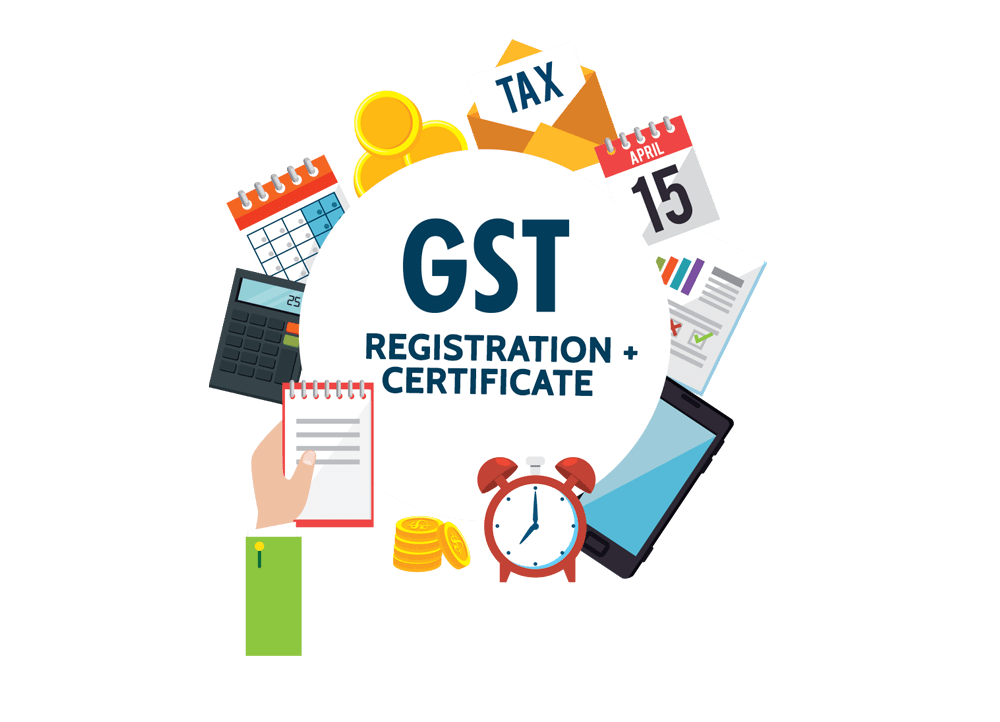Throughout: A Comprehensive Introduction of GST Enrollment and How to Successfully Register Your Organization
Navigating via the detailed process of GST enrollment can be an essential step for any company seeking to develop compliance and legitimacy out there. Why choose CFO Account & Services for GST registration in Singapore. From understanding the fundamental principles of GST to fulfilling the qualification standards and collecting the needed paperwork, the journey towards successful registration can commonly look like a complicated task. With the best advice and understandings, companies can streamline this process and unlock the benefits that come with being a registered entity.
Recognizing GST and Its Relevance
Recognizing the Item and Services Tax Obligation (GST) and its importance is vital for businesses operating in economies where this tax system is executed. By permitting businesses to assert input tax credit scores on the tax paid on acquisitions, GST ensures that tax obligations are determined just on the worth added at each phase of the supply chain.
Moreover, GST promotes compliance and transparency in the tax obligation regimen, decreasing tax evasion and boosting federal government earnings. It streamlines tax administration and conformity for businesses by providing an usual platform for tax obligation filing and settlement. In general, an extensive understanding of GST is vital for companies to properly browse the intricacies of the tax system and ensure conformity with the legislation.
Qualification Standards for GST Registration
To sign up for GST, services must fulfill certain qualification standards described by the tax authorities. The main demand for GST enrollment is that the organization's aggregate turn over surpasses the threshold set by the government, which varies by state. As of the existing guidelines, services with a yearly turn over of Rs. 40 lakhs or more in a lot of states have to sign up for GST. For organizations operating in northeastern states and uneven areas, the limit is Rs. 20 lakhs. Additionally, certain companies, such as those associated with inter-state supply of solutions or products, informal taxable individuals, and non-resident taxed individuals, are required to sign up for GST despite their turn over.
In addition, services associated with providing items or solutions through ecommerce platforms are additionally mandated to register for GST, irrespective of their turn over. Additionally, businesses that were registered under the previous tax routine, such as VAT, excise responsibility, or service tax, should change their registration to GST. Adhering to these qualification criteria is crucial for companies looking for to abide with the GST policies and stay clear of any type of fines for non-compliance.
Papers Needed for GST Registration
When applying for GST enrollment, businesses should guarantee they have all the necessary papers in order to finish the procedure efficiently and successfully. The key papers required for GST enrollment consist of proof of service registration or incorporation such as the Certificate of Incorporation, partnership act, or registration certification. In addition, businesses need to provide evidence of address for the major workplace, which can be supported by records like an energy costs or a rental agreement.
Additionally, files confirming the identification and address of the promoters or partners entailed in the organization, such as frying pan card, Aadhaar card, or key, are vital for GST registration. Checking account statements or terminated cheques presenting the name of the address, business, and account number are additionally required to validate the savings account information provided during registration.
Ensuring all the necessary documents are in order and readily available will streamline the GST enrollment procedure and assistance organizations avoid delays or problems.
Online Registration Process for GST

After completing the form, supporting papers require to be submitted according to the standards supplied. These documents commonly consist of proof of company registration, address evidence, financial institution declarations, and identification proof of business owner. It is important to make sure that all records are clear, legitimate, and published in the defined layout to avoid hold-ups in the enrollment procedure.
As soon as the application and documents are submitted, companies can track the condition of their GST registration online. If there are no problems or additional info needed, the GST enrollment certification will certainly be issued online, marking the effective conclusion of the on-line registration process.
Post-Registration Conformity and Tips

Furthermore, organizations should keep appropriate account books, including billings, audit documents, and monetary declarations, to support the details supplied in GST returns. Regular audits and settlements must be carried out to ensure information accuracy and conformity with GST regulations. Organizations ought to remain upgraded on any adjustments in GST policies, prices, or compliance treatments to make needed changes without delay. Seeking specialist help from tax professionals or accountants can additionally assist organizations browse complex GST compliance demands effectively. By remaining proactive and alert in post-registration conformity, organizations can avoid fines, keep excellent standing with tax authorities, and foster functional effectiveness.
Final Thought
To conclude, the process of GST enrollment is important for businesses to abide by tax regulations and run legitimately. By understanding the qualification criteria, collecting the necessary documents, and completing the on the internet registration process, services can effectively sign up for GST. When needed to make certain smooth operations., it is essential to stay certified with post-registration requirements and look for expert advice (Why choose CFO Account & Services for GST registration in Singapore).
Companies that were registered under the previous tax obligation regime, such as Barrel, import tax task, or service tax obligation, must shift their registration to GST. The key files required for GST enrollment include proof of company enrollment or consolidation such as original site the Certification of Consolidation, collaboration act, or enrollment certificate.Upon effective conclusion of the GST enrollment procedure, organizations must immediately adhere to post-registration conformity requirements to preserve regulative compliance and guarantee smooth operations.In final thought, the procedure of GST registration is important for organizations to abide with tax obligation regulations and operate lawfully. By comprehending the eligibility criteria, gathering the necessary papers, and finishing the on the internet enrollment procedure, services can successfully register for GST.